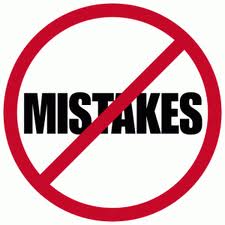Value Drivers: Customer Concentration
 Big customers always seem to be a big carrot for business owners. It’s hard to blame them when the big orders come in. With all the excitement of the big order, the owner with extreme customer service focus makes the customer very happy. Over time, these large customers may drive down the gross margin of the business because of their power and influence, and because they know the business owner needs them. At first it seems ok. As time goes on, the big customer gets most of the owner’s attention and most of the company’s resources.
Big customers always seem to be a big carrot for business owners. It’s hard to blame them when the big orders come in. With all the excitement of the big order, the owner with extreme customer service focus makes the customer very happy. Over time, these large customers may drive down the gross margin of the business because of their power and influence, and because they know the business owner needs them. At first it seems ok. As time goes on, the big customer gets most of the owner’s attention and most of the company’s resources.
Often times we see businesses that have customers that exceed 50% of total revenues. The customers are challenging, but gee wiz, they are the best customer ever! Many times the business owner hasn’t done the analysis that may reveal the customer costs them much more than the value received.
Sometimes businesses are built solely to service one customer. The whole intent and strategy to enter the business was because of a connection with the customer or a creative fix to an existing problem that the customer had. The future challenge becomes building diversification in the business so that no customer exceeds 10-15% of revenues. The stress from having one major customer can be a real negative influence on business owner’s strategic actions. The decision to have one major customer is fantastic if the business owner understands the risk.
When a decision to sell the business enters the picture, customer concentration risk has a huge impact on value. The more concentration there is with a few customers, the lower the value of the business. It’s that simple. There is too much risk for any buyer, even strategic buyers. Talk to your Kansas City Business Broker for details of how to prepare ahead of time to transition your business to family, employee, or to an outside party.





